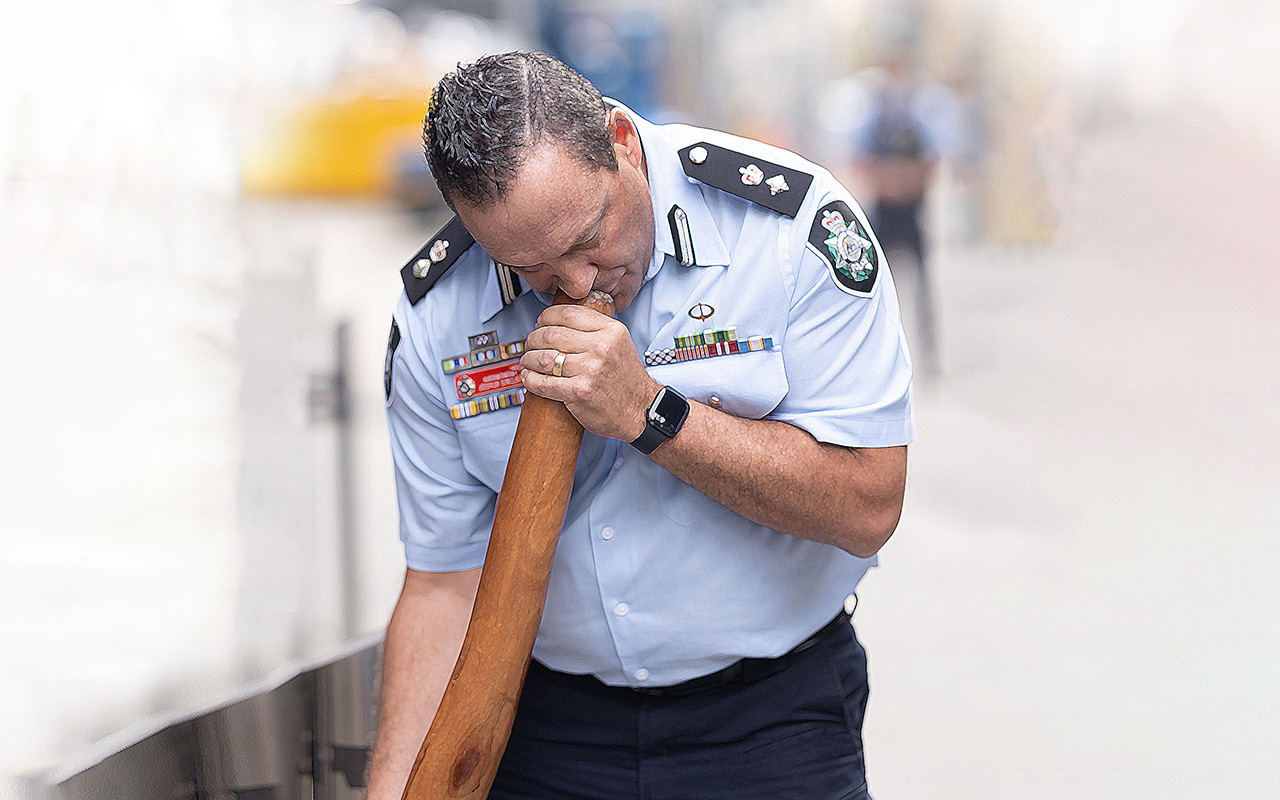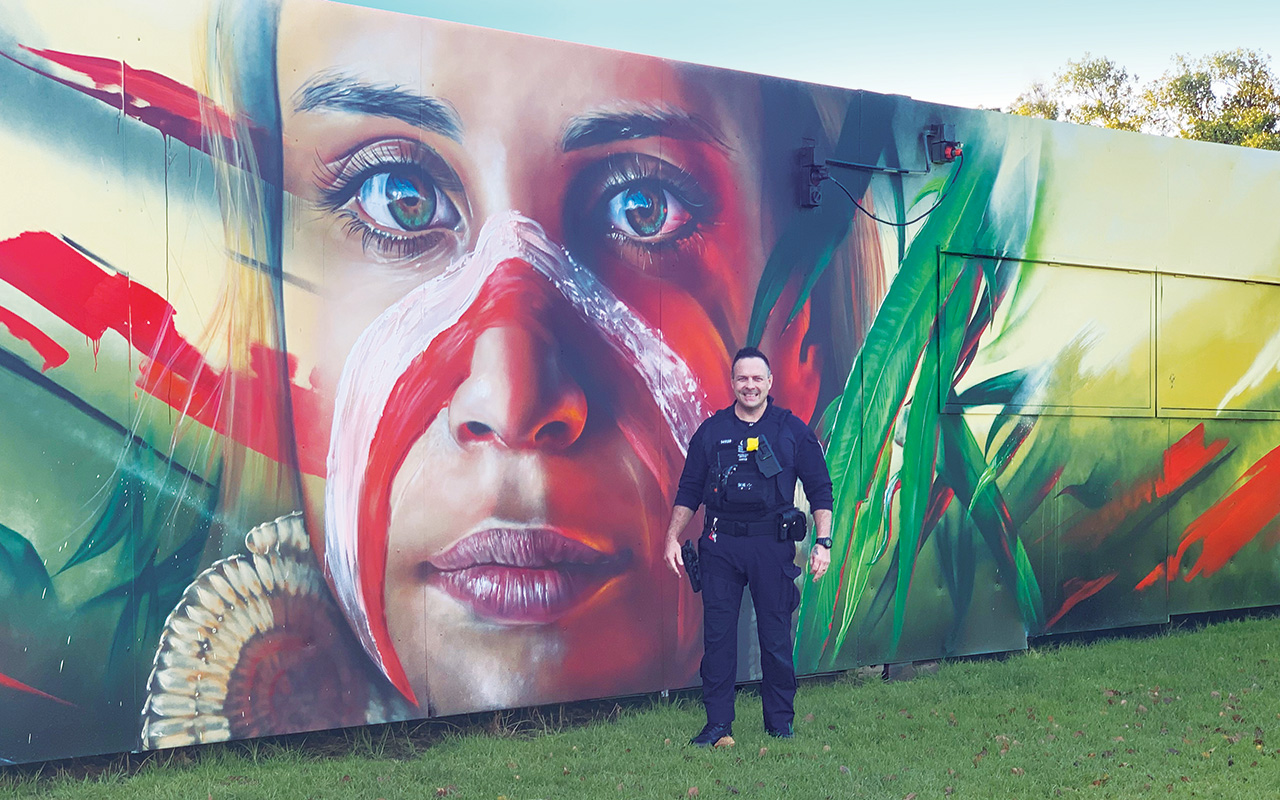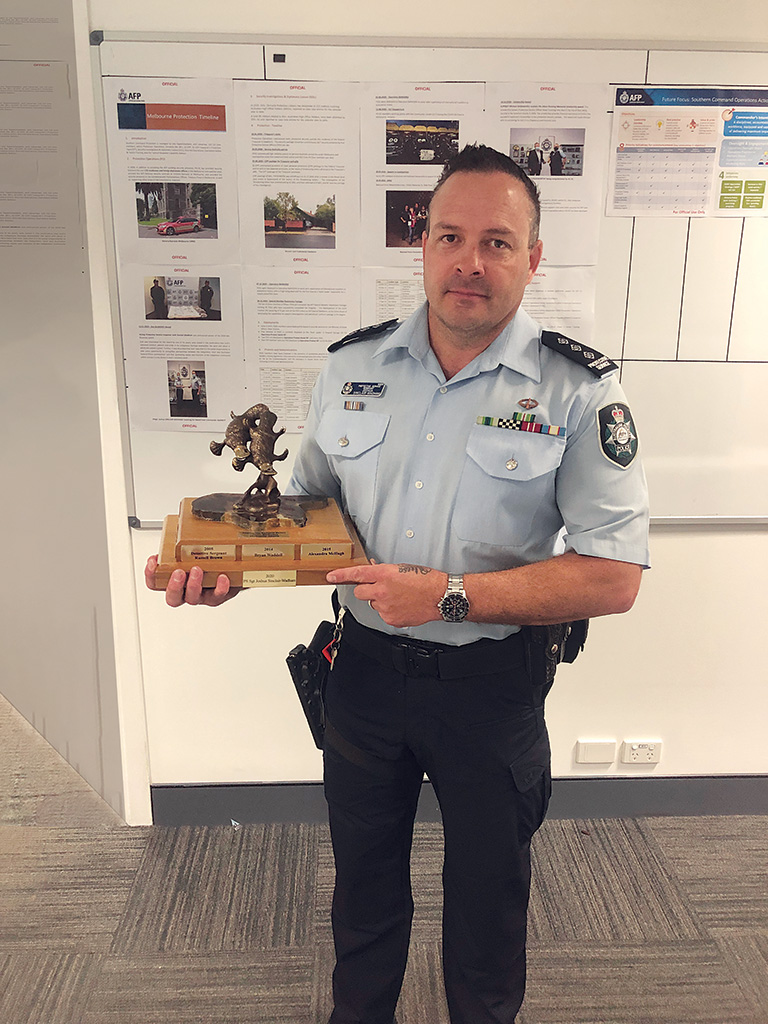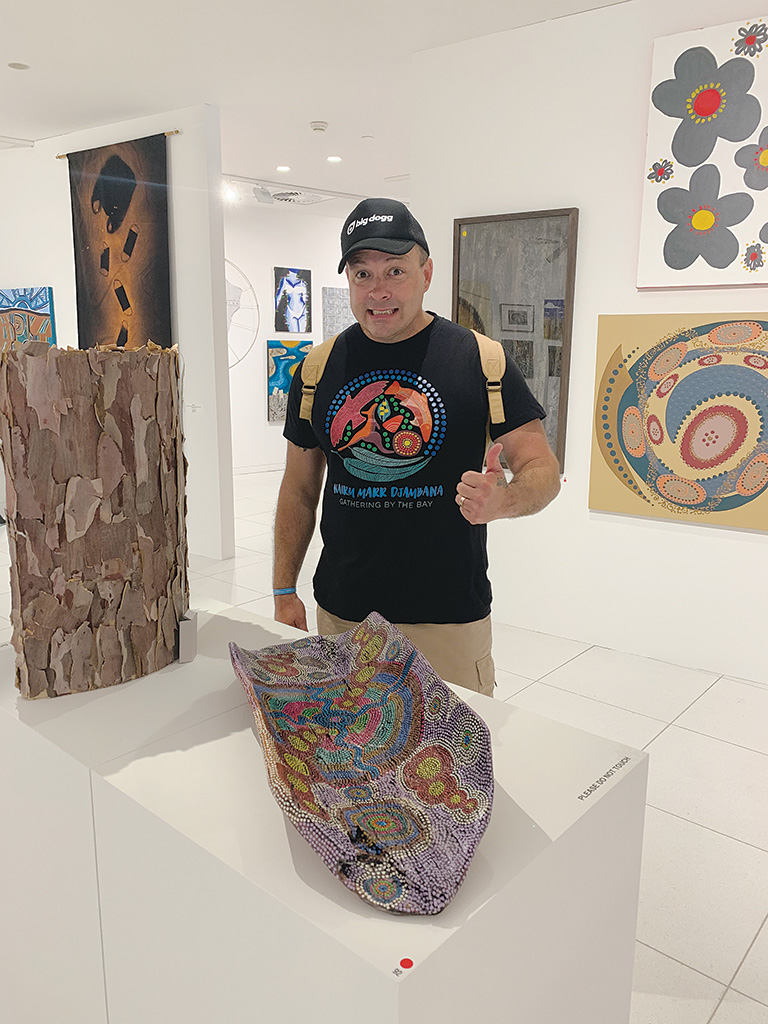
Mount Eliza’s Joshua Sinclair-Wadham, a proud Boandik man and the Australian Federal Police’s first Indigenous Protective Service Officer to be promoted to Superintendent, has an exciting challenge – being the AFP’s Australian Forward Commander for security of our Paralympians at the Paris Olympics.
“Look, I’m certainly not comparing myself to our Paralympians at all, however, their determination, struggle, and commitment is relatable. That nothing comes easy without hard work. I’m really looking forward to the opportunity.”
Is terrorism the worst-case scenario? “I think if you look at Paris and the history of that part of the world, terrorism would be high on the threat level. Apart from a huge natural disaster, I don’t think it gets much worse than that.”
Protective Service Officers are first responders to national security threats, look after parliament houses, defence establishments and consulates, and provide protection and security for Federal Members of Parliament and visiting foreign dignitaries. Joshua was recently the Acting Australian Federal Police Forwarded Commander for Melbourne in charge of the protection of delegates to ASEAN, the first time a PSO Superintendent had taken on such a task.
Joshua put himself up for the role and says, “I’m very big about those who come behind me – for those members that are worried that they can’t achieve or there are roadblocks, or they might not be up to it or the organisation doesn’t see them as valued. I’m really passionate about paving the way for them.”
Born in NSW, Joshua grew up on the Central Coast in Darkinjung country not too far from the sea. His family moved there from Mooney Mooney on the Hawkesbury River, where his great-grandfather was given an allotment after WW1 and lived there with his great-grandmother, an Aboriginal woman and part of the stolen generation.
“I usually say she was a servant, but she wasn’t paid, so I guess the term slave is the best way to put it. They obviously had affection for each other and had several kids, which is how my grandmother, my father and I came about. They were raised on the Hawkesbury and ran the postal service up and down the river by boat because there was no bridge across the Hawkesbury at that point.”
“I didn’t know who we were or where I belonged. As a young boy, I always knew I was aboriginal but didn’t really know where from. There was a big void – something was missing.
“I didn’t know who we were or where I belonged. As a young boy, I always knew I was aboriginal but didn’t really know where from. There was a big void – something was missing. I didn’t really understand where I fitted, and my father didn’t either because they never spoke of it due to shame, but there was always this yearning or calling to know more.”
“When I was around 13-years-old I met an Aboriginal guy, probably about the age I am now, who told me that it wasn’t uncommon not to know that side of it, and he said, ‘You’ve got to start your journey and try to listen and learn.’ I can’t remember his name, but we did a cultural camp for two days, and we were walking along the beach – interestingly, in years to come the same beach where I proposed to my wife – having this discussion about not worrying about things that aren’t in your control. He said, ‘You’ve got a proud history; you need to seek it out,’ and something clicked.”



Joshua joined the military and served in East Timor and in the Solomon Islands, worked with the armed forces in the US, Malaysia, Fiji,Tonga, Papua New Guinea and Thailand, making lifelong friends throughout his travels. “It was exciting, but I can’t pretend there weren’t some scary moments. At the time, I didn’t have any children, so I didn’t have that burden of missing home. It was a bit of an adventure. The military gave me a lot, but I’d be lying if I didn’t say it took a lot away as well.”
Joshua had some close personal encounters with death and lost four or five mates over his time in the Defense force. He often thinks about how fortunate he is to still be here and his lost friends and their families are always on his mind. He felt immune to it at the time but says, “I think that catches up with you later in life especially when you have kids.”
He encountered the AFP when he was deployed to the Solomon Islands in a joint task force. “We worked fairly closely with the AFP doing some high-risk things, knocking on doors, some pretty rough stuff. Then they came in and did the paperwork and made the arrests, and I wondered what they got paid when we were doing all the work,” Josh laughs. “It was pretty substantial compared to us.”
Joshua put in an application and was successful.
“I came into the AFP as a Protective Service Officer, and I looked at that word—protection—and right through my time in the military, the AFP, and the work I do in the community, and in schools, the protection aspect is really big for me. As a kid, I was always fighting for the underdog. I remember that walk down the beach and I try and be that influence. I talk about the crossroads moment at 13 or 14 where you can make a really good decision or a really bad one about where your future goes.”
Joshua takes his yidaki (digeridoo) with him and uses it to start conversations. “My culture is the cornerstone of who I am. Everything that I am and do is linked to my culture. The main thing I do is through my children, but I’m also on the board of Derrimut Weelam Gathering Place at Mordialloc. I do a lot of stuff with the kids, making and playing didgeridoos. I can be myself. When you’re with mob, it’s different; you can have a laugh, and no one judges you. For me, it’s where I feel most at home.”
Does Joshua experience overt discrimination? “If you’d spoken to me before the Voice referendum, I was really embedded in the community and really passionate. My biggest fear is that by pushing my culture – and I’ve pushed my children to be loud and proud – I’m a little bit scared that the country’s not ready for them, and I’m wondering if I’ve made the right decision.”
“The Voice nearly broke me. But many of the schools here on the Peninsula lean so hard into Aboriginal culture; they do their acknowledgment of country, and the kids know all the terminology. I recently held up an Aboriginal football, and a prep student yelled out, ‘It’s a Marngrook’ (part of the origins of Aussie Rules), and I was nearly in tears.” “That’s the future right there.”





